Spotify takes down some white supremacist music; Disney Jr. show "Doc McStuffins" draws praise and some criticism for a recent episode that includes a family with same-sex parents; “Gook,” a new film written, directed by and starring Justin Chon, revisits the 1992 L.A. riots from the perspective of Korean Americans.
In 'Gook,' Justin Chon revisits the LA riots through a Korean-American lens
There have been many films about the L.A. riots over the years, but Justin Chon felt something was missing -- the Korean-American side of the story.
This year marks the 25th anniversary of the uprising, which took place in South Central Los Angeles in 1992 following the acquittal of four white officers over the beating of Rodney King. Many Korean businesses were looted during the civil unrest, including a shoe store owned by Justin’s father. This became the basis for “Gook,” a new film written, directed by and starring Chon that premiered at the Sundance Film Festival earlier this year.
"When I told [my dad] that I wanted to make this film, he was really confused," says Chon. "He didn't understand why I wanted to revisit such a traumatic time."
The "Twilight" actor says that he had caught wind of other films in development about the riots. But after reading the scripts he felt they weren't "accurately or authentically portraying" the Korean-American story.
"Koreans were most financially hit by the riots. Most of their businesses were looted and destroyed," says Chon. "I just felt like the Korean story needed to be at the table for the conversation."
"Gook" is a narrative feature that presents the riots as they unfold before Eli and Daniel, Korean-American brothers played by Chon and David So, an actor, producer, singer and comedian with a YouTube channel with over 1.4 million subscribers. The film also stars Chon's father, Sang Chon, as the Korean liquor store owner Mr. Kim, and Simone Baker, as a young African-American girl named Kamilla.
When Chon and So stopped by The Frame, they talked about the meaning of the word "Gook" and why a film about the L.A. riots is still relevant today.
INTERVIEW HIGHLIGHTS:
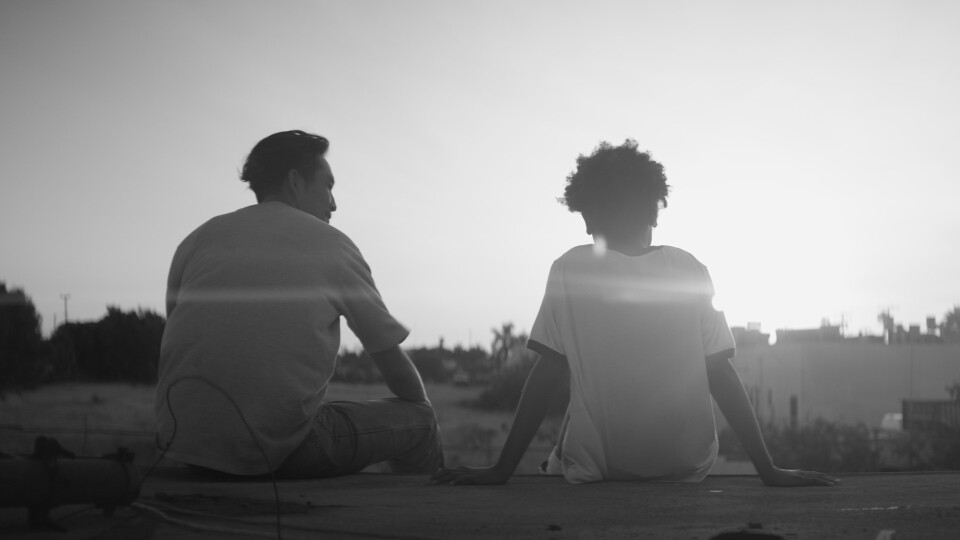
On the meaning of the word "Gook":
CHON: When the G.I.'s came to Korea in the Korean war they would say, Miguk saram, and that means "American person." But "miguk," the direct translation means "beautiful country," and we're talking about America. How that word became bastardized and became a racial slur is just ignorance. ... That just felt like the most fitting title. It wasn't meant for shock factor, it's an opportunity to educate.
On tense relations between the Korean and African-American communities, especially after the death of LaTasha Harlins:
CHON: You know, from what I know, the Korean community was a scapegoat. LA County was saying, You know, it's your guys' fault for aggravating them, ... which we all know is not the sole reason why the riots happened. ... And there was this huge racial tension -- [the Korean grocer] Soon Ja Du, that was a case where LaTasha Harlins got ... shot and killed [and Du] did not go to jail. There was a lot of animosity between the communities.
David So on growing up Korean-American in an African-American community:
SO: My parents actually owned a black beauty supply store growing up. As a kid, I was Korean-American but I also identified with the black community a lot because that was the community I grew up in. ... I felt like I was a part of this community but at the same time I wasn't. So I would hear a lot of things that I never understood. ... We, as business owners, we were very poor. Nobody could see that though. They just see you're a business owner, and you're in our neighborhood and you're selling us stuff. It was such a weird feeling for me because I was like, But I'm broke just like you! ... But when two communities hurt at the same time, there's no empathy.
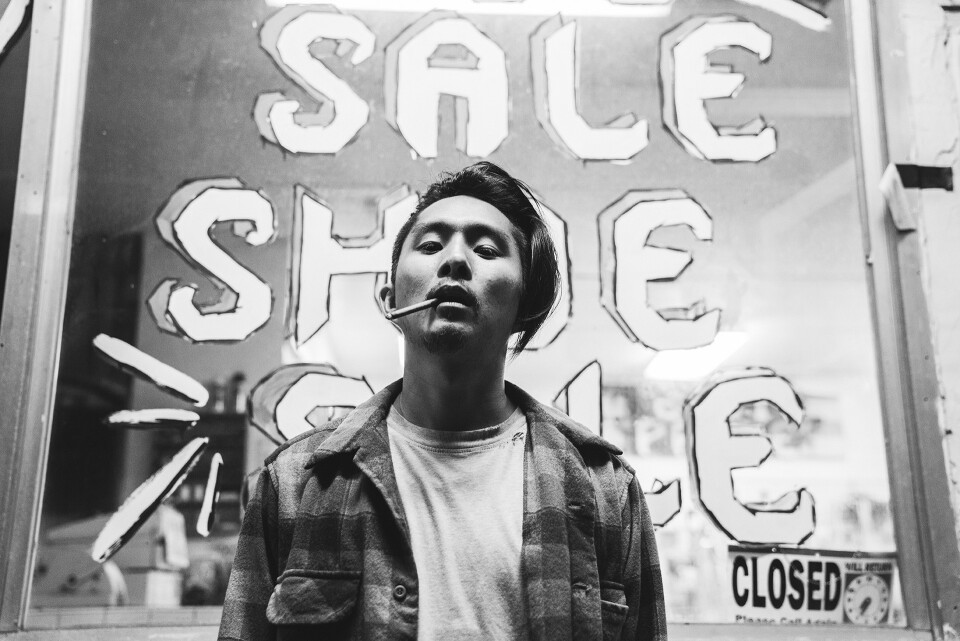
On the film's realistic representation of Asian-Americans:
SO: My favorite part about the film is just, like, how real it is. Look at the Daniel character that Justin created. There was this depiction of Asian-Americans that I never understood growing up which was that we were the geeky nerds that didn't have any aspirations outside of owning a business or studying in school. But there were kids like me that had aspirations outside of that. We were also a product of the environment we had. I have friends who wanted to be rappers, musicians, dancers and until this day they are dancers. I have a friend right now that I grew up with and he's one of the main cast members of Jabbawockeez. He's one of the creators. And there's me who became a musician and a writer and a singer. And it was so refreshing the way that Justin wrote it where it was, like, this isn't an alternative perspective, this is real perspective, you know?
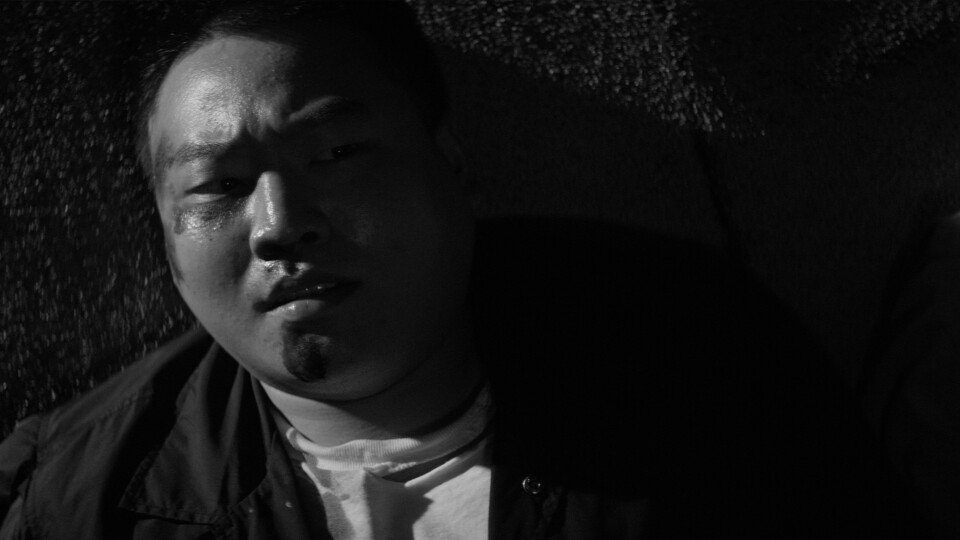
What Justin Chon learned from speaking to his father about his experience during the L.A. riots:
CHON: I've learned so much through this process about my dad and what kind of person he is. ... He was telling me his concerns and what he was thinking about at the time. And I was like, Well, were you scared? And he was like, I didn't have time to be scared. I was thinking about protecting the store because, if we lost it, you guys wouldn't be eating. ... I respected him a lot more and it just made me appreciate everything that he and my mother have done for me to allow me to be an artist.
Why other communities, including African-Americans, should see the film:
SO: It gives a refreshing perspective that two communities could not see of each other. And I think that when people do come see it, especially ... African-American community, ... they'll understand. I just had a conversation with my friend Rick. He said that, From my perspective as a black American, we just saw you guys getting these loans from banks, and you were opening up businesses that we weren't allowed to. They wouldn't give it to us. My parents tried to open up businesses and they wouldn't let us. But then you come into this country, with no credit to your name, and they're letting you open up businesses. How does that make us feel? And I was like, Wow. So it is very important that people see this film.
CHON: My intention was [that] I want everybody to be a part of the conversation but I didn't want to pick sides. You know, it is what it is.
To hear John Horn's full interview with Justin Chon and David So, click on the player above.
Wanda Sykes brings same-sex parenting to Disney Jr.’s ‘Doc McStuffins’
Since its debut in 2012, the Disney Jr. show "Doc McStuffins" has been widely praised for featuring an empowered African American girl as its main character. In a recent episode the show went another step towards inclusion by featuring a family with same-sex parents.
The episode, which, notably isn't about the family having two moms, is about the importance of having an emergency plan. The actresses Wanda Sykes and Portia de Rossi voice the mother characters.
Since its airing earlier this month, a conservative organization called One Million Moms complained about the show’s including a same-sex family.
Meanwhile, others supported the show with the #StandWithDoc hashtag on Twitter.
🏳️🌈Everyone, please thank @DisneyChannel 4 adding 2 moms on #docmcstuffins! We watch the show regularly! #StandWithDoc #LGBT #LGBTFamilies pic.twitter.com/imQJKXnenO
— Eric Rosswood (@LGBT_Activist) August 4, 2017
"Doc McStuffins" creator Chris Nee is in a same-sex marriage and is a mom herself. When she visited The Frame with Wanda Sykes, she explained why she wanted to include a same-sex couple in her show now.
We think it's really important to see yourself onscreen. For us, we're 120 episodes into this particular series and we have one episode of all of them that features a same-sex family. We just want to represent the world as it is.
Sykes, who is also in a same-sex marriage and is a mother, says her decision to join this particular episode was for personal reasons.
I love the show. My kids watch the show. My daughter went as Doc McStuffins for a couple halloweens. [The episode] was not about them being a same-sex couple. They just happened to be. It's so funny because that's the way my kids watched that episode. They didn't say, "Hey, it's two moms. They said, "Hey, do we have an emergency plan?"
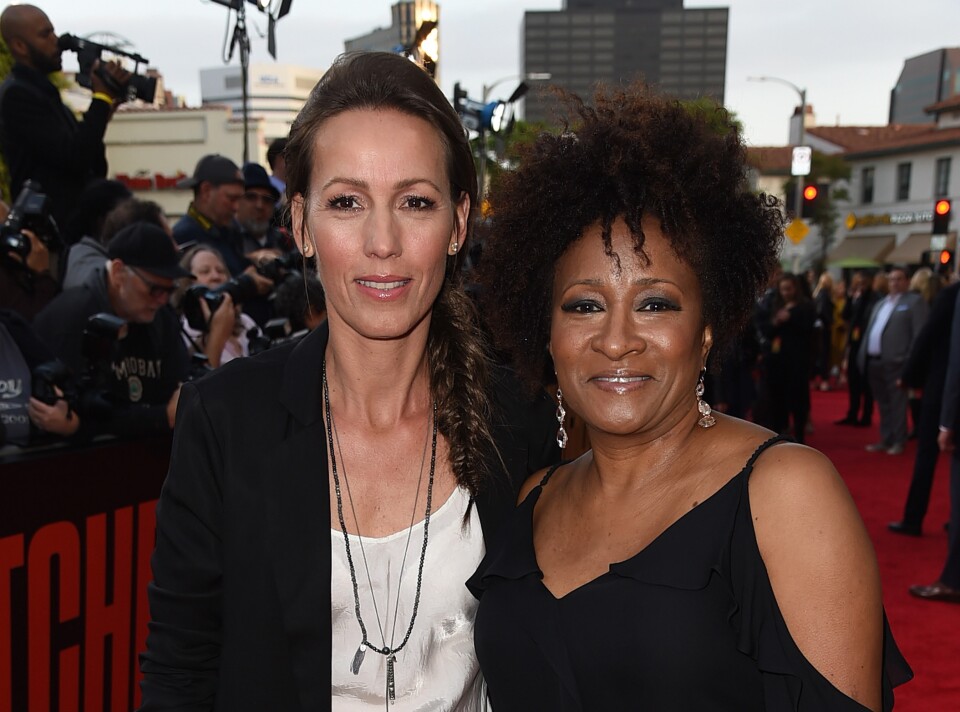
The positive reaction to the recent episode in the media and on Twitter, along with Disney's willingness to air the show, to Nee, indicated a shift toward inclusivity in children's programming.
I think the response completely makes it clear why it was important, and why it was important for Disney to say, we want to represent what's actually out there and what kids are experiencing – either with their own families or with other families in their schools.
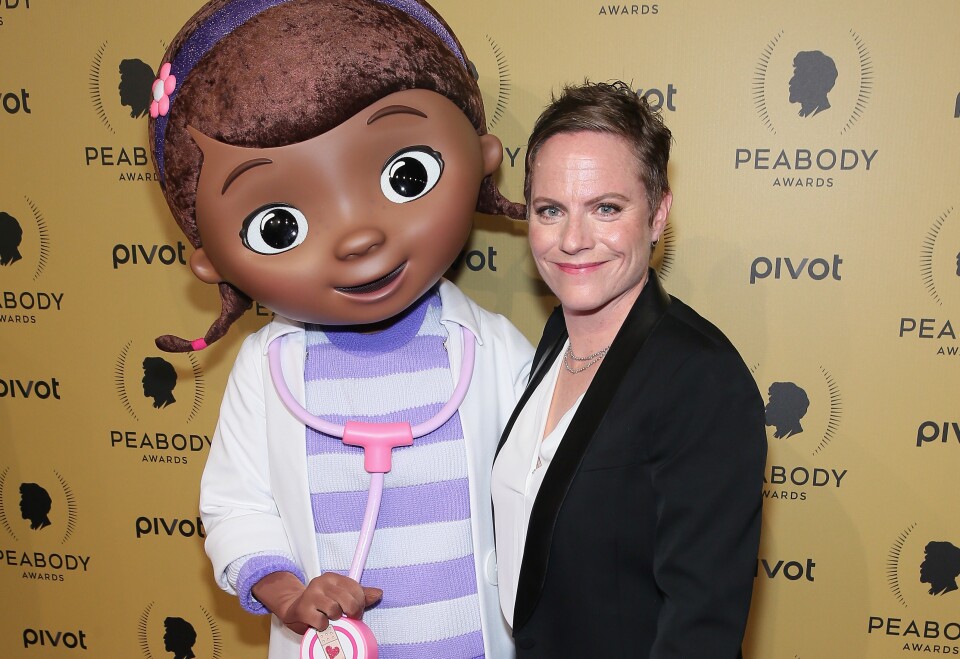
Both Sykes and Nee say their children have many opportunities to know other same-sex couples and be with other same-sex families. In some ways, the episode could be more emotional for adults who haven't seen themselves on screen in children's television.
A lot of kids growing up now — they're not aware of the controversy. So they are just watching this episode and not seeing what, to us, is a remarkable moment. And I do often think it's the parents that are crying sitting and watching this kids TV show because we're bringing the history of what it was to come out in the '80s, to live in the '90s, to go through the 2000s to get to this place right now.
"Doc McStuffins" episodes are available on the Disney app and on Disney Jr VOD.
To hear this conversation click the play button at the top of the page.
Hear no evil: Spotify makes an effort to strike 'hate music' from its platform
A national effort is underway to take down Confederate statues and symbols in major U.S. cities. Now music streaming services, like Spotify, are also joining the efforts to obscure white power messages and neo-Nazi groups from their platforms.
Three years ago, Southern Poverty Law Center compiled a list identifying violent, white-nationalist, and hate-fueled music and groups available on Spotify.
On Monday, Digital Music News' publisher Paul Resnikoff posted the article "I Just Found 37 White Supremacist Bands on Spotify." In the article, Resnikoff said there hadn't been a streamlined effort to remove these bands after the wake of the Nazi rally and terror attack in Charlottesville, Virginia.
Since the article came out, Spotify has started purging these bands from their streaming platform, stating "We are glad to have been alerted to this content — and have already removed many of the bands identified today, whilst urgently reviewing the remainder."
Music service Deezer has also announced its maintenance to remove white-nationalist, Nazi, or other "hate-music" from their services.
But both Spotify and Deezer are private companies. So this means their obligation to adhere to first amendment principles and honor their artists' rights to free speech is null in cases such as this.
But removing this vein of music isn't going to be simple. Resnikoff says a lot of the groups' lyrics or sounds convey covert racism. He says, "I got the sense that there's a more hardcore group of bands out there that are more overt. But those would have been flagged in an earlier period."
Without lyrics to signal white-nationalist content, deeper research into the band's members and history might be necessary. An example of this is "Fashwave," ("Fash" standing for fascism) music. The sound is synth-heavy with little-to-no lyrics and the political ideologies live within the sonic lining of the music. Fashwave producers, musicians, and distributors identify as fascists and are making music meant to be completely free from African rhythmic influence.
Resnikoff said after publishing the article on Monday, a debate sparked over how to identify hate-music in situations where the music isn't overtly supremacist. Resnikoff says:
One group that came up, that I'd listed, is this group Bölzer. Their this Swiss, extreme death metal band. I listened to their music and instrumentally it sounded pretty good. They had a pretty decent following but the leader singer has swastika tattoos and other tattoos of Nazi-era type symbols. That gets a little bit confusing because then in an interview, he denied that they had any reference to the Nazi era, that the symbols predated the Nazi period.
So you go back and forth and have to make a determination on your own about what you think. I judge that to be racist but other people didn't.
It's important to note that type of music can be found all over the world. Resnikoff says as he listened and dug through the recesses of Spotify's libraries, he was finding white-supremacist followings in Eastern Europe, Western Europe, and Austrailia.
But after Charlottesville, Resnikoff said listenership was growing, triggering Spotify's recommendation algorithm to connect listeners with more on-brand groups. He says:
I knew this was an issue on YouTube. Their smart algorithms use a lot of methods for recommending other bands you might like, and a lot of that is based on what other people are listening to. That creates this 'affinity clump' which I was able to see. It wasn't too hard to find additional groups based on these reccomendation algorithms.
To hear the full interview, click the blue bar above.




